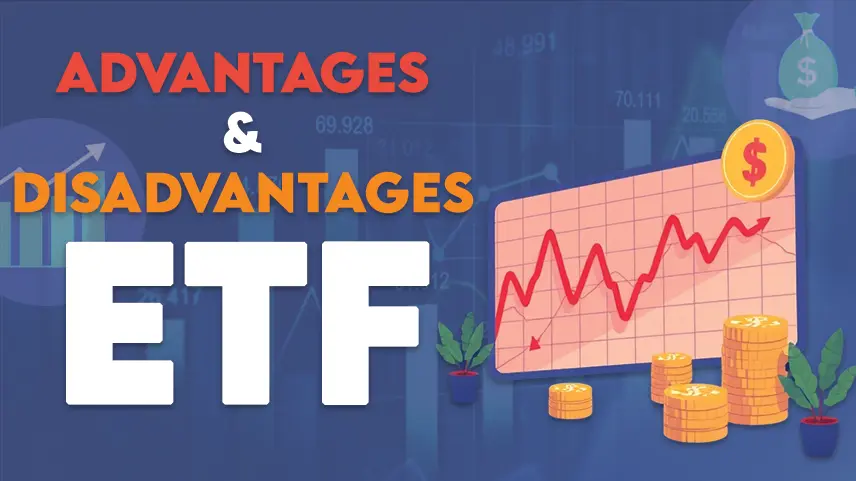Exchange-Traded Funds, or ETFs, have emerged as a versatile and widely embraced investment vehicle. Since their inception in the early 1990s, ETFs have transformed the way individuals and institutions approach portfolio management, offering a blend of features from both mutual funds and individual stocks.
ETF meaning are investment funds that hold a collection of assets such as stocks, bonds, commodities, or a mixture of these. Unlike mutual funds, which are traded only at the end of the trading day at the fund’s net asset value (NAV), Best ETF in India are traded on major stock exchanges throughout the trading day at market prices, like individual stocks. These characteristics grant investors the ability to buy and sell shares of ETFs at any time during market hours, providing a level of convenience and immediacy in executing trades.

Advantages of ETF – Exchange Traded Fund
1. Diversification
ETFs Provide an easy way to achieve diversification, holding a basket of securities, NSE ETF allow investors to spread their risk across multiple sector, assets or regions, It’s a beneficial for individuals investors who may not have the capital to invest in the wide range of individual stocks and bonds.
2. Liquidity
ETF full form is Exchange traded fund) trades on major exchange just like stocks, meaning they can be bought and sold on the trading day at market prices. This feature allows investors to buy and sell shares throughout the day, enabling them to respond swiftly to changes in the market.
3. Cost - Effectiveness
ETFs typically have lower expenses ratios compared to ETF vs Mutual Fund. This is due to their passive management style, where ETF investment often track an index rather than relying on active management. Lower costs can significantly impact on the investors’ returns over the long term.
4. Tax Efficiency
ETFs are more tax efficient than mutual fund due to their unique structure. The process of creating and redeeming ETFs shares helps minimize the capital gains to shareholders, potentially reucing tax liabilities.
Disadvantages of ETF – Exchange Traded Fund
1. Trading Costs
ETFs are generally cost effectiveness frequent trading can lead to high transaction costs. Commissions and bid as spreads can add up, particularly for investors who trade frequently or in large volumes.
2. Market Risk
ETFs are subject to market risks similar to the individual securities they hold. In the declining market, the value of an ETFs can decrease, leading to potential losses.
3. Tracking Error
ETFs are designed to replicate the performance of the Index, but they may not always perfectly track their underlying benchmarks.
4. Liquid in Niche Markets
ETFs are generally liquid, those that focus on niche markets or less-traded sectors may experience lower liquidity. This can result in wider bid-ask spreads and potentially higher trading costs.
Conclusion
ETFs offer a range of advantages, including diversification, cost-effectiveness, liquidity, transparency, and tax efficiency, making them a popular choice for many investors. However, they also come with disadvantages such as trading costs, market risk, complexity, tracking errors, and potential liquidity issues in niche markets.


0 comments